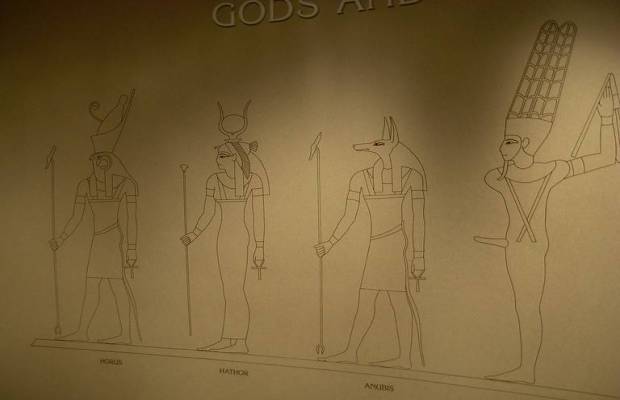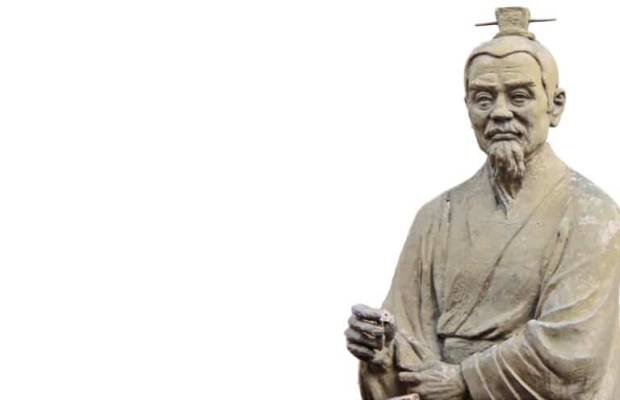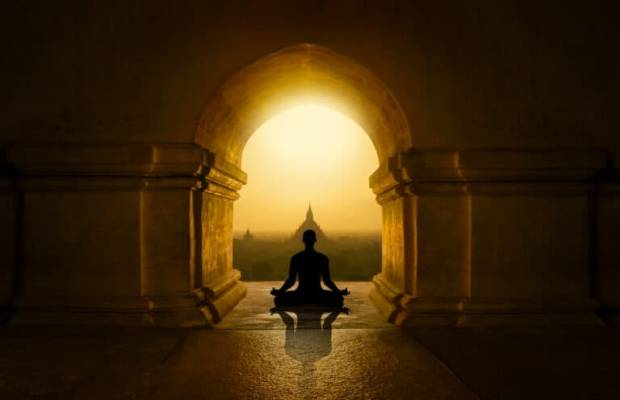Top 10 Oldest Religions In The World

Religion, an important aspect of global culture, intricately weaves its influence through the societies, shaping identities, customs, class structures, and even the political landscapes of numerous modern nations. To grasp the essence of religion, one must embark on a journey through time to unravel its roots. While some of the world's earliest religions trace their origins back to the 15th century, others boast a venerable history extending over 5,000 years.
Delving into the annals of human spirituality, we encounter a rich mosaic of beliefs that have withstood the test of time, leaving an indelible mark on civilizations. From ancient rites to contemporary practices, the evolution of these spiritual systems provides invaluable insights into the human quest for meaning and connection. As we explore the ten oldest religions in the world, we unravel the threads that bind diverse cultures across epochs, fostering a deeper understanding of the profound role religion plays in shaping our collective human experience.
Top 10 Oldest Religions In The World 2023/2024
- Polytheism (Ancient)
- Yahwism/Judaism (2085 B.C.)
- Hinduism (1500 B.C.)
- Confucianism (600 B.C.)
- Buddhism (560 B.C.)
- Taoism (450-500 A.D.)
- Zoroastrianism (6th century B.C. or earlier)
- Christianity (30 A.D.)
- Islam (610 A.D.)
- Sikhism (1499 A.D.)
1. Polytheism

Polytheism, the oldest form of practiced religion, manifested in various pagan traditions dedicated to venerating a multitude of gods. Its roots can be traced back to ancient civilizations, with Egyptian myths and Sumerian tablets from 4000 B.C. and 3500 B.C., respectively, serving as early records.
Examples of polytheism abound in the worship of multiple deities in Ancient Egypt, Ancient Greece, and Rome. Noteworthy figures include Aphrodite, the Greek goddess of love, and Dionysus, the god of wine.
2. Yahwism and Judaism

Judaism, originating around 2,085 B.C., finds its roots in Yahwism, an ancient religion practiced by the Hebrew people over 4,000 years ago. The journey began with Abraham, called upon by Yahweh to establish a nation. Isaac and Jacob, his son and grandson, became pivotal figures, laying the foundation for the Israelite nation.
READ ALSO » Top 5 Most Popular Religions In The World
Enslaved by the Egyptians for centuries, the Israelites were liberated by Moses, who, acting on God's orders, presented them with the Ten Commandments. These commandments, shaping Jewish law, marked the transformation of Yahwism into Judaism.
Judaism, a monotheistic faith, venerates Yahweh as the creator of the universe. Originating in the Middle East, it has spread across various landscapes, with Israel being its primary home. Christianity, stemming from Judaic teachings, worships both Yahweh and Jesus Christ, while Judaism remains rooted in the unwavering devotion to Yahweh as the chosen people's God.
3. Hinduism

Hinduism, originating around 1,500 B.C., thrives predominantly in Southeast Asian countries, notably India, where approximately four out of five individuals identify with this ancient faith. The religion has significantly influenced other faiths such as Buddhism, Jainism, and Sikhism, establishing Hinduism as one of the world's oldest religions.
Central to Hinduism is the concept of dharma, advocating virtuous living and moral conduct. Dharma, an omnipresent force, structures societal dynamics and universal processes. The religion incorporates a caste system, categorizing social classes, and reveres symbols like the sacred sound om and the swastika, initially representing good fortune but later tainted by its association with the Nazi party. Hinduism also embraces ideas of samsara, signifying reincarnation, and karma, the law of cause and effect. While lacking a formal founder or a singular holy scripture, sacred texts like the Vedas contain teachings and hymns.
Hindus acknowledge one primary deity, Brahma, but adhere to henotheism by recognizing other gods emanating from Brahma. Brahma is attributed with the creation of the world, with Vishnu serving as the protector and Shiva as the destroyer and rebuilder. Hindus also uphold the belief in atman, asserting that all living beings possess a soul. Cows hold paramount significance, deemed the most sacred animals, influencing dietary choices among Hindus who often abstain from consuming beef and, in some cases, pork, with a notable portion adhering to vegetarianism.
4. Confucianism

Founded by the philosopher Confucius in 600 B.C., Confucianism is often regarded not only as a religious belief but also as a political philosophy, encompassing both spiritual and societal ideals. Confucius emphasized a hierarchical societal structure, delineating key relationships: king and minister, husband and wife, and father and son. He asserted that his teachings were divinely inspired, originating from Heaven rather than personal philosophy. Confucius advocated for virtue-based living, prioritizing relationships, righteousness, ritual observance, wisdom through knowledge, and the importance of trustworthiness in maintaining credibility and relationships.
5. Buddhism

Established by Siddhartha Gautama in 560 B.C., Buddhism centers around the pursuit of enlightenment—a state of inner peace and wisdom. Siddhartha, known as the Buddha, attained enlightenment after exploring life's extremes. Unlike traditional gods, Buddhism focuses on achieving enlightenment through meditation and moral practices. The religion shares concepts like reincarnation, karma, and dharma with Hinduism, utilizing symbols such as the swastika.
READ ALSO » Top 10 Modern Religions In The World
The Four Noble Truths encapsulate Buddhism's core values, addressing suffering, its cause, cessation, and the path to freedom. The Eightfold Path outlines steps toward ending suffering through virtues. Buddhists practice in various settings, including temples, homes, and sanctuaries, guided by leaders like monks or the Dalai Lama. Numerous scriptures, including the Tipitaka and Sutras, elucidate Buddhist teachings. Distinct branches like Theravada, Mahayana, and Tibetan Buddhism offer diverse approaches to the pursuit of enlightenment.
6. Taoism

Founded between 450 and 500 A.D. in China, Taoism originated from native traditions that evolved into a religion. Initially embraced by the educated and wealthy classes, it gradually spread to lower classes, with diverse practices like Ch’üan-chen catering to different followers. The central concept, Tao, meaning the way, symbolizes supreme elements within reality. Taoism emphasizes the Yin Yang symbol, representing the perpetual evolution of the universe, and the crane, symbolizing perfection. Focused on self-betterment and self-restraint rooted in the principle of sham (goodness), Taoism lacks a specific leader or sacred scripture. Its principles stem from indigenous practices, and priests primarily lead rituals rather than preach messages from a higher power.
7. Zoroastrianism

The origins of Zoroastrianism, debated between the 6th century B.C. and almost a thousand years prior, center around the teachings of the prophet Zoroaster in ancient Persia. This monotheistic faith venerates Ahura Mazda, promoting the law of asha, emphasizing truth and righteousness. Although only a few hundred thousand adhere to Zoroastrianism today, it once dominated the Persian empire under Cyrus the Great, influencing subsequent religions like Christianity and Islam. Characterized by symbols such as the Faravahar representing eternity and fire symbolizing purification and light, Zoroastrianism's ancient temples featured perpetual fires on altars, believed to be gifts from Ahura Mazda. Dakhmas, towers housing deceased Zoroastrians, served as resting places before burial. After the Muslim takeover in the mid-600s A.D., some Zoroastrians embraced Islam, marking a significant historical shift.
8. Christianity

Originating in 30 A.D., Christianity is founded on the life and teachings of Jesus Christ, a Jewish figure born in Nazareth. Jesus's message, challenging Judaic laws, centered on salvation through belief in him as the Son of God. After his crucifixion and resurrection, his disciples established the Christian church, spreading its influence across Europe and the Middle East through figures like Paul the Apostle. Christianity's core tenets include loving God (Yahweh) and others, promoting virtues like self-control and humility, detailed in the Holy Bible. It encompasses various denominations, with Protestants and Catholics being the primary divisions.
9. Islam

Emerging in 610 A.D., Islam, meaning submission to the will of God, worships Allah and traces its roots to Abraham. The last prophet, Muhammad, received Allah's message through the angel Gabriel. Central to Islam is the concept of jihad (struggle), involving defense against internal and external forces. The Five Pillars of Islam; shahada, salat, zakat, sawm, and hajj, outline key components of the faith, emphasizing affirming belief, prayer, charity, fasting (during Ramadan), and pilgrimage. The Quran serves as the primary religious text, and Islam encompasses sects like Sunni and Shiite.
10. Sikhism
Founded in 1499 by Guru Nanak, Sikhism emerged from Hinduism and Buddhism. Sikhism rejects the caste system, denouncing it in the Adi Granth, their sacred text. The Adi Granth, comprising hymns by the original 10 Sikh Gurus and other prominent Sikhs, holds significance in Sikh worship services. Another text, the Dasam Granth, is considered sacred by some Sikhs. Sikhism incorporates rituals like rites of passage and festivals, with followers adhering to moral principles and avoiding specific sins. The Sikh initiation process involves distinct steps, and festivals commemorate major life events or Sikh martyrs' sacrifices.
In conclusion, this exploration of ancient and enduring religions reveals diverse beliefs that have shaped civilizations over millennia. From the polytheistic roots of ancient civilizations to the profound teachings of figures like Confucius, Buddha, and Jesus Christ, each faith reflects unique perspectives on existence, morality, and the divine. Whether through philosophy of Taoism, the monotheistic devotion of Zoroastrianism and Islam, or the egalitarian principles of Sikhism, these religions continue to influence cultures globally. As humanity's collective journey unfolds, these enduring spiritual traditions provide valuable insights into the complexities of faith, morality, and the human experience.
